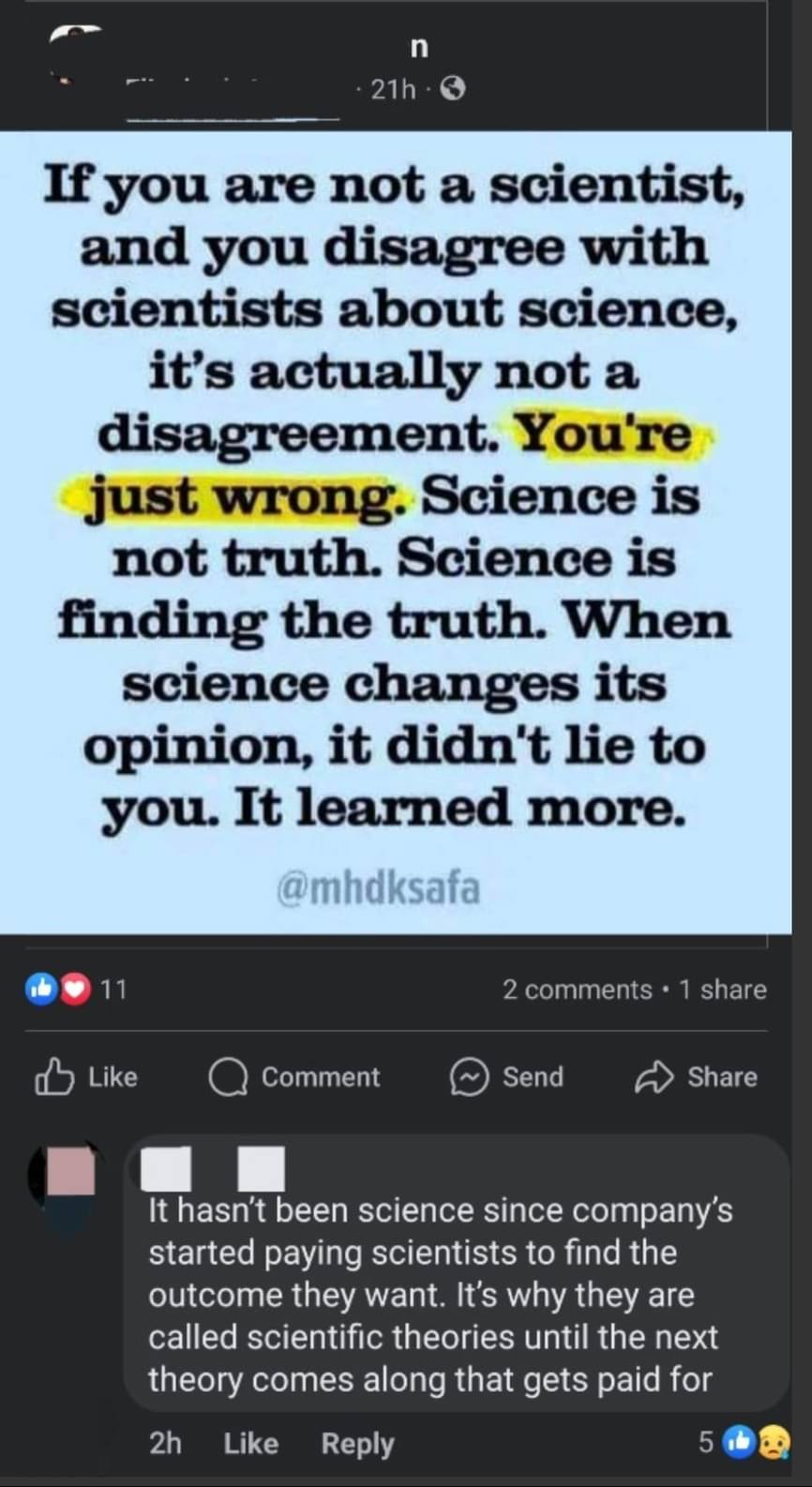The part which annoys me is about intentions.
Sure, lobby groups do pay off some people with a PhD to lie for them (Patrick Moore), that's not up for debate.
But to imply that this is the norm is just ignorant of how research is conducted.
Most scientists are either employed by a company, working towards a very specific, non contentious goal (like developing cold fusion), or are involved in research at a university, paid for in grants by their government to research whatever has been approved as worthy of investigation.
Nobody is pressuring these researchers to find evidence to support any particular agenda, the chips land where they fall. There's no fat cat smoking a cigar telling the climate science team at their local university that they need to find more evidence to crash the petrol stocks so they can sell more solar panels.

